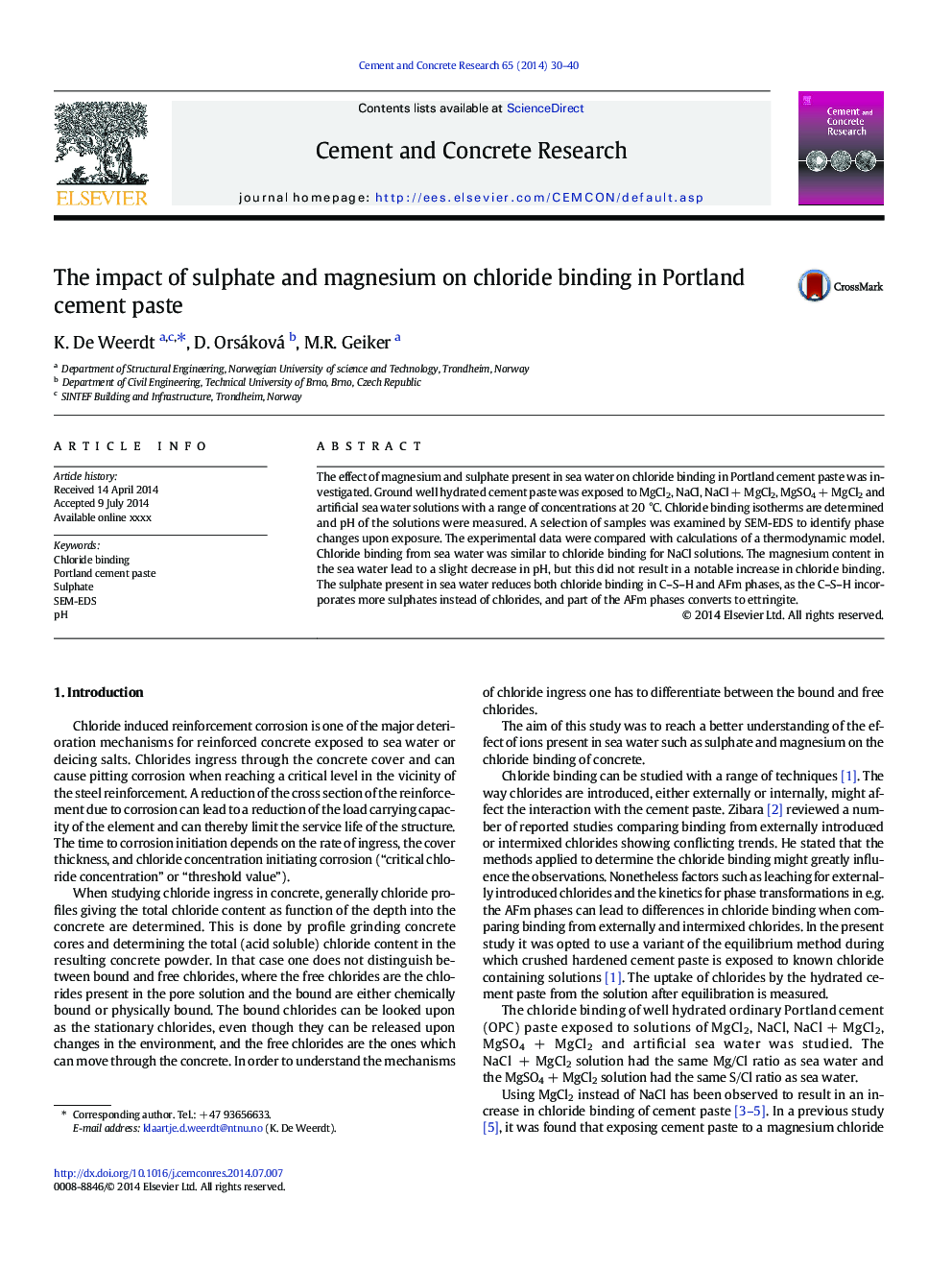| Article ID | Journal | Published Year | Pages | File Type |
|---|---|---|---|---|
| 7885435 | Cement and Concrete Research | 2014 | 11 Pages |
Abstract
The effect of magnesium and sulphate present in sea water on chloride binding in Portland cement paste was investigated. Ground well hydrated cement paste was exposed to MgCl2, NaCl, NaCl + MgCl2, MgSO4 + MgCl2 and artificial sea water solutions with a range of concentrations at 20 °C. Chloride binding isotherms are determined and pH of the solutions were measured. A selection of samples was examined by SEM-EDS to identify phase changes upon exposure. The experimental data were compared with calculations of a thermodynamic model. Chloride binding from sea water was similar to chloride binding for NaCl solutions. The magnesium content in the sea water lead to a slight decrease in pH, but this did not result in a notable increase in chloride binding. The sulphate present in sea water reduces both chloride binding in C-S-H and AFm phases, as the C-S-H incorporates more sulphates instead of chlorides, and part of the AFm phases converts to ettringite.
Related Topics
Physical Sciences and Engineering
Engineering
Industrial and Manufacturing Engineering
Authors
K. De Weerdt, D. Orsáková, M.R. Geiker,
